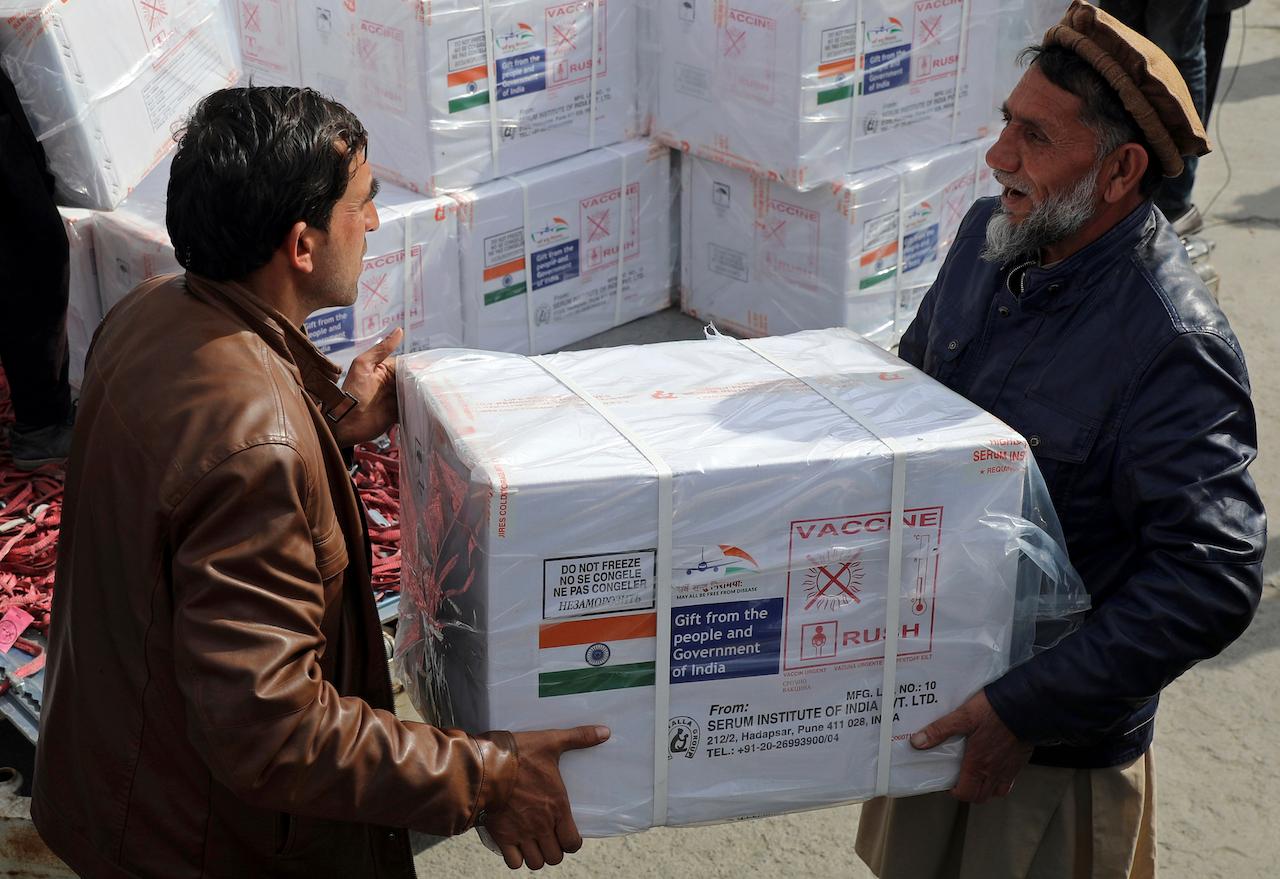‘The wait is over’: Bangladesh and Iran bring out the shots this week
Afghanistan has received its first doses but is still waiting for emergency approval from WHO before it can use them.
Just In
Bangladesh launched its nationwide Covid-19 vaccination drive with the Oxford University-AstraZeneca vaccine on Sunday, aiming to inoculate 3.5 million people or 80% of the population in the first month. Much of the vaccine has come as a gift from India.
The government has halved its target for the first month from six million people as only 328,000 people had registered for the jab by Saturday.
Health Minister Zahid Maleque told Reuters, “I appeal to the people not to pay heed to rumours and take the vaccine. The wait is over. I took the vaccine today. I am feeling good. Everyone must take the vaccine.”
He added that 567 coronavirus frontline health workers, who were vaccinated last week before the vaccine programme launch, had not experienced any difficulties or side effects.
Bangladesh will get 68 million doses of vaccine from the Gavi vaccine alliance, the health minister said, referring to a global health partnership set up to increase access to immunisation in poor countries.
Meanwhile, Iran, the epicenter of the Middle East’s worst outbreak, will start its first vaccinations on Tuesday using Russia’s Sputnik V shot to inoculate medical personnel tending to serious cases, Iran’s Health Minister said on Sunday, according to state-run Islamic Republic News Agency.
Some 1.3 million of the most vulnerable people will also receive their first shots by March 20, or the end of the current Iranian year, the government’s official website said. A spokesman for the government’s coronavirus task force said that the vaccines will be free of charge.
Supreme Leader Ayatollah Ali Khamenei’s decision to ban British and American-made shots as untrustworthy could further complicate efforts to stabilise Iran’s struggle and begin recovery, though Iran has secured some 4.2 million doses of the UK-based AstraZeneca-Oxford University shot through the global vaccine procurement system.
Iran’s ambassador to Russia said the two countries would soon finalise an agreement for Iran to produce Russian jab Sputnik V by April, according to state TV.
Iran has also unveiled its second locally developed vaccine, called Razi Cov Pars, a recombinant protein-based vaccine developed by state-owned Razi Vaccine and Serum Research Institute, state TV reported.
The first clinical trial phase of Coviran, the country’s other homemade vaccine, was completed last week and is expected to be approved for use in the general population by the summer, officials have said.
Things may finally be looking up in Afghanistan as it received 500,000 doses of AstraZeneca’s vaccine from India on Sunday, the first to arrive in the country. However, the embattled country is still waiting for emergency approval from the World Health Organization (WHO) before it can use the jabs produced for mid- and low-income countries.
The head of the immunisation programme said the doses would be stored in Kabul until the emergency authorisation was received, which it hopes will happen in a week.
Health workers, security force members, teachers and government employees will receive the vaccine first, and the Afghan government has already trained 1,000 people to deliver the vaccine out of the 3,000 who will be needed to carry out its vaccination drive.
WHO listed Pfizer and BioNTech’s vaccine for emergency use on Dec 31 as it sought to accelerate vaccination in the developing world, which is badly lagging Western countries.
Subscribe to our newsletter
To be updated with all the latest news and analyses daily.
